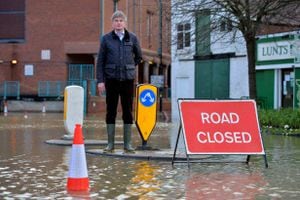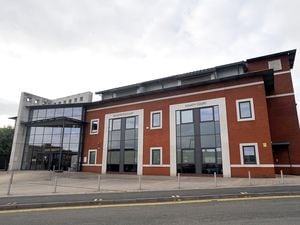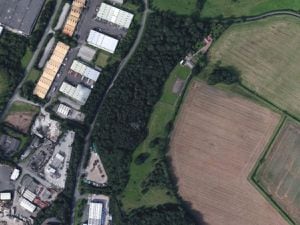Environment Secretary to visit flood-hit areas of Shropshire
Environment Secretary George Eustice said he would visit flood-hit areas of Shropshire after the matter was raised in the House of Commons.

Daniel Kawczynski, MP for Shrewsbury and Atcham, said his constituency had suffered from 'appalling devastation' as a result of the floods. He told Mr Eustice that a new approach was needed to tackle the River Severn as a whole, rather than installing flood defences in the worst hit areas.
Mr Kawczynski urged Mr Eustice to visit the area to see the effect it was having on people's lives.

The news comes as co-leader of the Liberal Democrats Ed Davey visited Shrewsbury today - and was critical of Boris Johnson's failure to attend.
Telford MP Lucy Allan and Ludlow MP Philip Dunne also raised the issue of flooding in in their constituencies during a debate in the House of Commons.
Mr Kawczynski told the Commons: "The devastation in Shrewsbury, our town in Shropshire, is appalling. I hope the Secretary of State will take time out of his busy diary to see the extent of the misery my town is facing."
See also:
He told Mr Eustice that local representatives of the Environment Agency and Shropshire Council had a long-term solution for managing the River Severn, which ran through 18 constituencies.
"Rather than piecemeal flood defences, which just push the problem further downstream, we need a holistic approach to managing the whole river, including through wet washland schemes," he said.
Last week, Mr Kawczynski also called for a dam to be included as part of the proposed North West Relief Road.
Mr Eustice said the River Severn had been the most affected area during the recent flooding.
"The demountable barriers at many places along the Severn have proved crucial in preventing more properties from being flooded, but of course I am more than happy to visit Shrewsbury and his constituency to meet the local Environment Agency staff," he said.
Ms Allan praised the work of the Environment Agency in handling the floods.
"In my constituency we have had two severe flood warnings in the last week, and as I speak the River Severn is rising and Ironbridge looks set to experience difficulties with the flood barriers overtopping," she said.

"I thank the minister for the amazing work of his team and of the Environment Agency. Will he ensure that my constituents in the affected areas will continue to receive this level of support during this very difficult time?"
Mr Eustice said the Government was monitoring the situation at Ironbridge closely.
"We are not yet out of the woods with this particular incident," he said during the debate yesterday afternoon.
"Rainfall over the past 48 hours is still working its way through the Severn in particular, and towns such as Ironbridge are still at risk. We are monitoring the situation closely."
Mr Dunne said about half the houses in Shropshire affected by the floods were in his constituency, on both the River Severn and the River Teme.

But he said many of the areas he represented did not have the flood defences available in other areas.
"Upstream from Tenbury Wells, Ludlow has had floods," he told Mr Eustice.
'An immediate challenge'
"What we need there are flood defences similar to those that are available elsewhere on the River Severn.
"As we speak, householders in Bridgnorth, Clun and Shrewsbury are expecting water levels higher than those of Monday last week. That is an immediate challenge.
"In the aftermath of the floods, will my right honorouble friend, as he considers the next phase of flood defences, also consider towns such as Bridgnorth, Ludlow and Clun in my constituency?"
Mr Eustice said the demountable defences, which could be temporarily placed alongside key rivers such as the Severn, had played an important role.
"Water levels will continue to rise, and some towns, including those that he mentioned, continue to be at risk," he said.
North Shropshire MP Owen Paterson, himself a former environment secretary, said he had been advised by an expert in his constituency that the solution would be to ensure the flow of water was slowed at the top, and sped up at the bottom.

"By that, he means holding water in the hills, with more reservoirs, more planting, more trees and more adaptation to soil—and speed it up at the bottom, which means taking the example of what we did in Somerset and instructing all the hard-working people in the Environment Agency to dredge the rivers, as well as giving extensive powers to the internal drainage boards to keep ditches, waterways and smaller rivers clear," Mr Paterson added.
Mr Eustice said he remembered working with Mr Paterson during the 2014 floods in Somerset.
"It is the case that we absolutely want to hold water upstream using nature-based solutions," said Mr Eustice.
But he said speeding up water downstream could sometimes be complicated.
"Sometimes, it is the right thing to do but, sometimes, if it is a very tidal area, racing water at high speed when there is an incoming tide can cause concerns, and indeed, that was one of the concerns that we had in Gloucester and Tewkesbury last week," Mr Eustice added.





